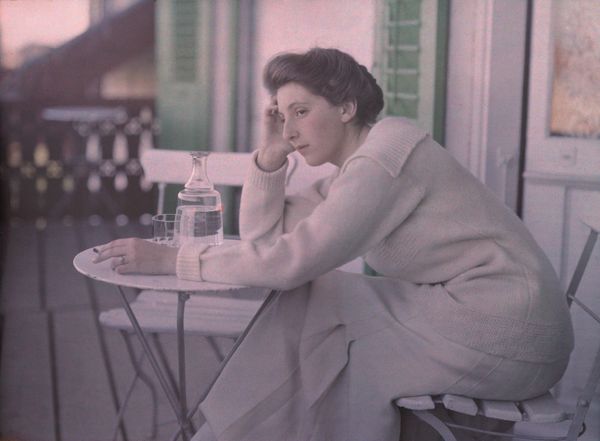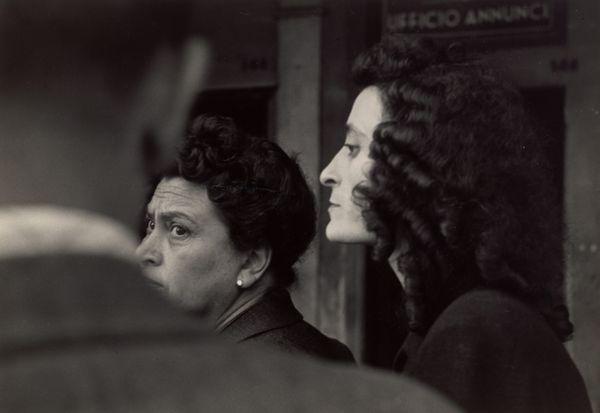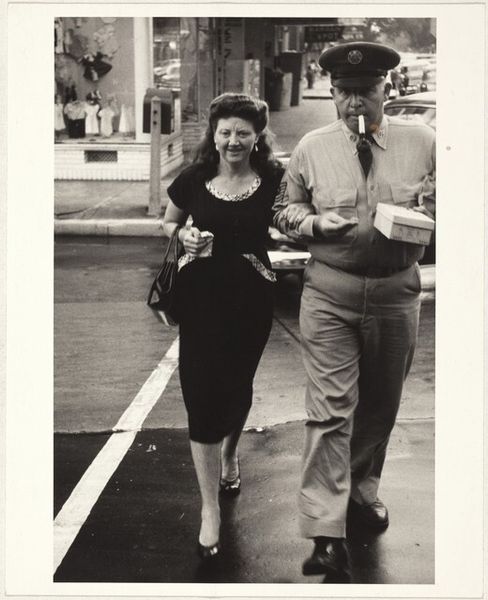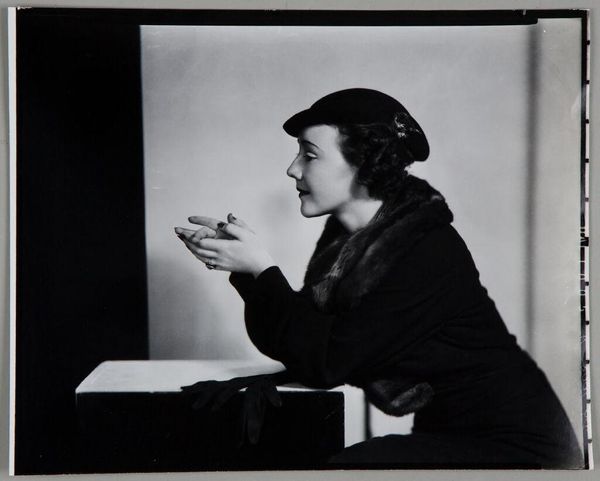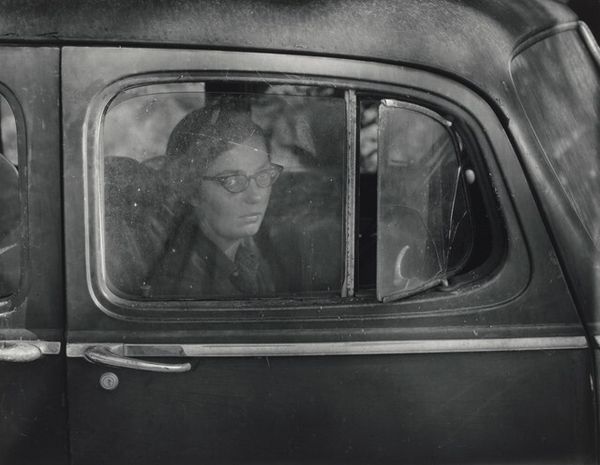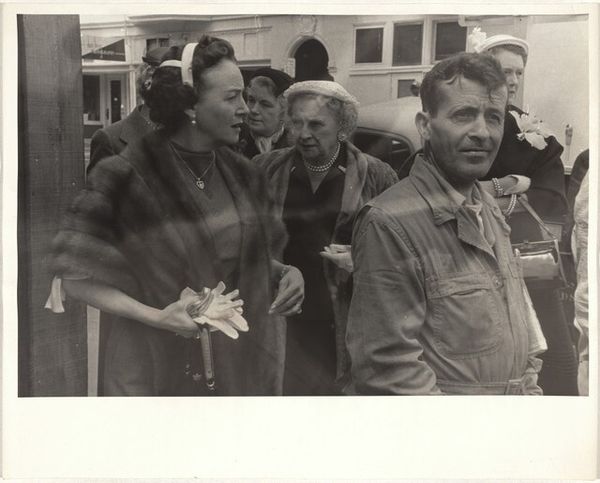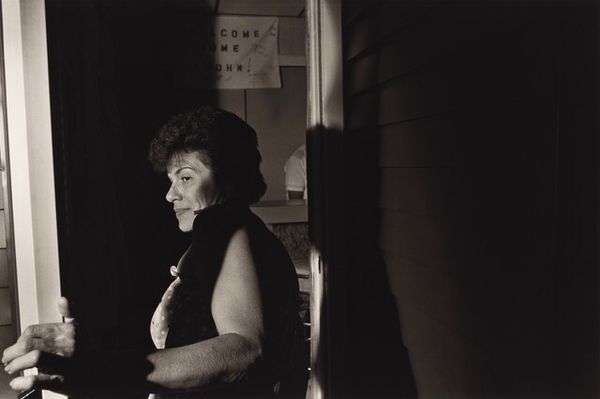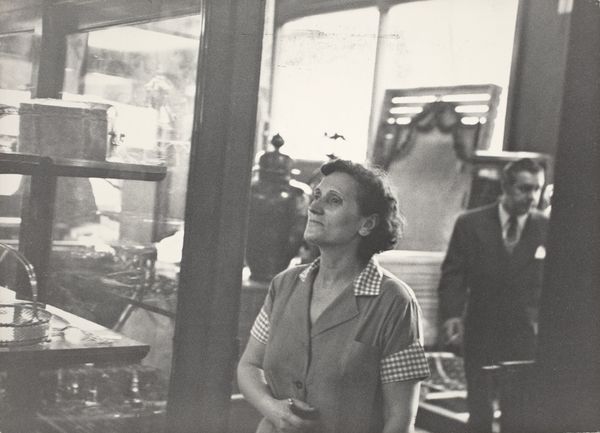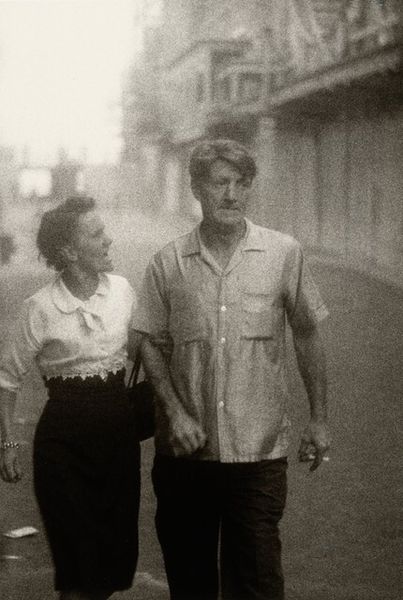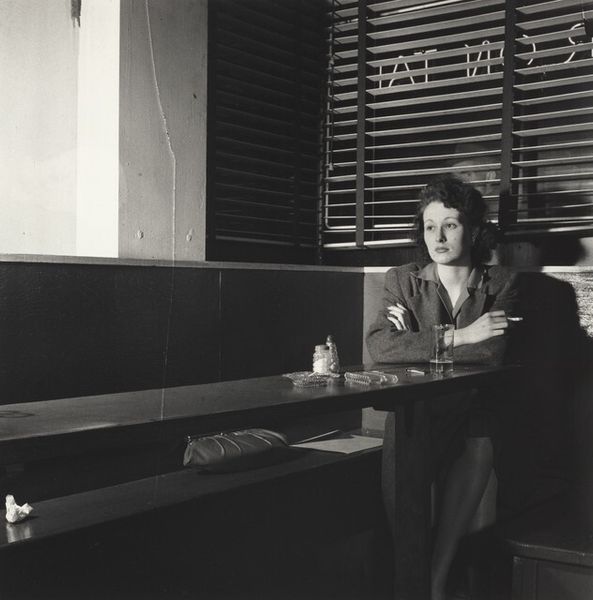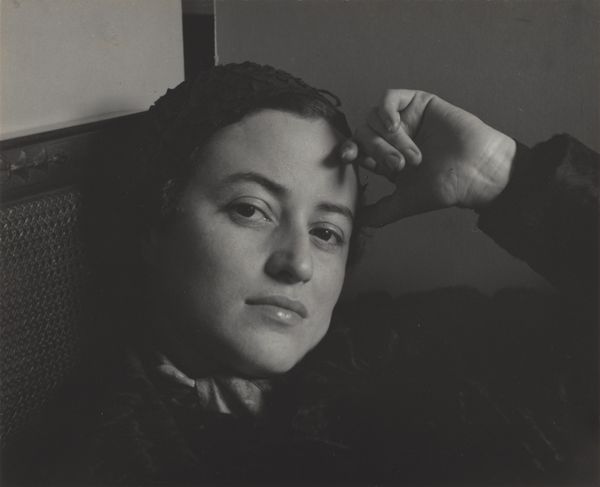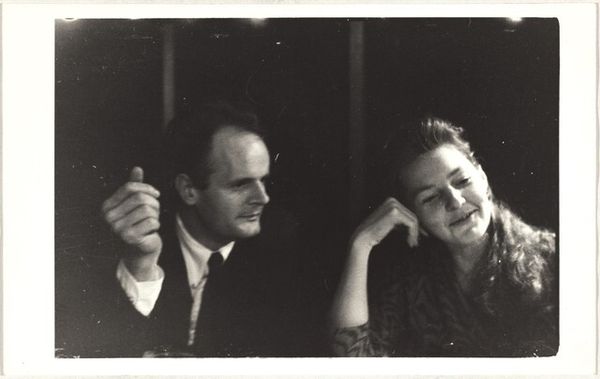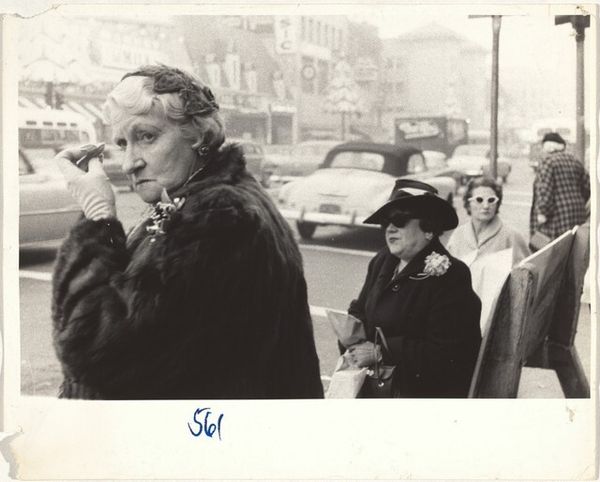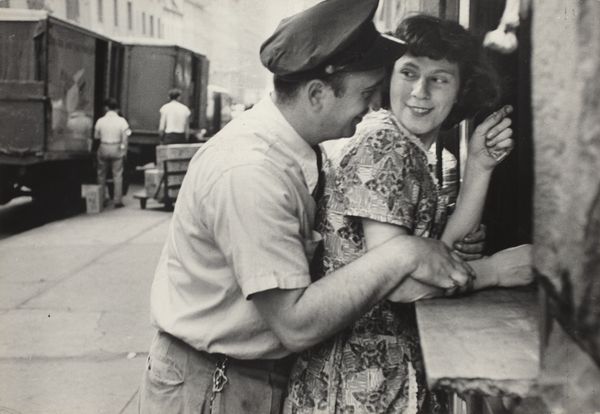
photography
#
portrait
#
black and white photography
#
outdoor photograph
#
street-photography
#
photography
#
historical photography
#
black and white
#
realism
Dimensions: image: 16.5 × 16.75 cm (6 1/2 × 6 5/8 in.) sheet: 20.32 × 25.4 cm (8 × 10 in.)
Copyright: National Gallery of Art: CC0 1.0
Editor: Here we have Dorothea Lange's photograph, "Richmond, California," taken sometime before 1955. It's a black and white image, and I’m struck by the contrast between the softness of the young woman's face and the almost aggressive angularity of the parking meter she's leaning on. What can you tell me about it? Curator: Lange’s work, especially during the Depression and wartime, frequently confronted social inequalities. Considering the title, Richmond, California, what stories of wartime industrial boom and population shifts might this image be telling? The woman’s gaze seems fixed, but almost melancholy, against the backdrop of urban life. Editor: That makes me wonder about her story. Was Richmond a place of opportunity for her? Or a place of displacement? Curator: Exactly. It makes us consider the role of women and young people in wartime economies, and the social and emotional costs that often accompany rapid industrialization. The parking meter itself is a symbol of regulation and control, but it is also intimately touched and embraced by the pictured subjects. Is it an indication of constraint or intimacy? What do you think? Editor: I see both, actually. There's this sense of restriction alongside human connection in the middle of it all. Perhaps the imposed limitations strengthened their resolve? Curator: I would say so. By situating these individuals within the urban landscape, Lange subtly critiques the social structures and norms that shaped their experiences and speaks volumes about human resilience and adaptation. Editor: Thinking about it that way really reframes the photograph for me. I see now how much history and commentary are embedded in what at first glance seemed like a simple portrait. Curator: Indeed, Dorothea Lange makes us reconsider who exactly we value as worthy to document in the archives. It is always a fruitful moment of consideration when we consider power, access, and equity.
Comments
No comments
Be the first to comment and join the conversation on the ultimate creative platform.
